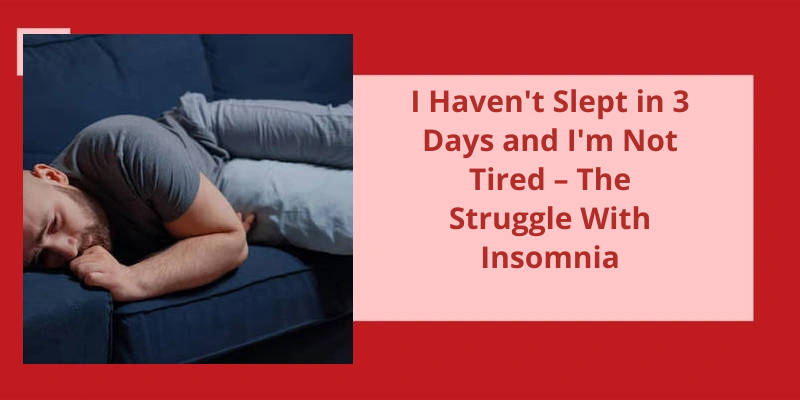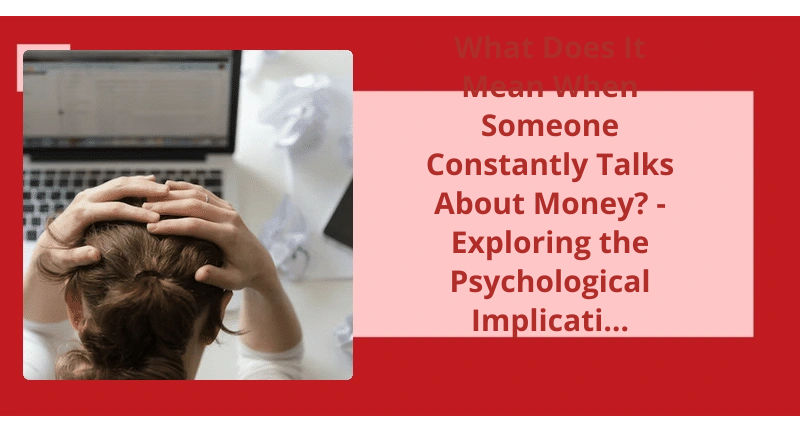Why Can’t I Fall Asleep Even Though I’m Really Tired?
One possible reason you may not be able to fall asleep despite feeling tired is an imbalance in your circadian rhythm. Your circadian rhythm is a natural internal clock that regulates your sleep-wake cycle. When this rhythm is disrupted, it can throw off your bodys ability to fall asleep and stay asleep. Factors such as irregular sleep patterns, jet lag, and shift work can all contribute to circadian rhythm disruptions.
Additionally, poor napping habits can disrupt your ability to sleep at night. Taking long or frequent naps during the day can make it difficult to feel tired when bedtime rolls around. It’s important to establish a consistent sleep schedule that includes a regular wake-up time and bedtime to help regulate your bodys sleep-wake cycle.
Anxiety and depression can also play a role in preventing you from falling asleep. Racing thoughts, worries, and negative emotions can keep your mind active and make it difficult to relax and unwind. Managing stress, practicing relaxation techniques, and seeking professional help if needed can all help improve your ability to fall asleep.
Consuming caffeine, especially later in the day, can also interfere with your ability to fall asleep. Caffeine is a stimulant that can keep you awake and alert for several hours, so it’s important to limit consumption, particularly in the evening.
The blue light emitted by electronic devices such as smartphones, tablets, and computers can also disrupt your sleep. Blue light can suppress the production of melatonin, a hormone that helps regulate sleep. It’s advisable to avoid electronic devices at least an hour before bedtime to give your body a chance to wind down and prepare for sleep.
Lastly, certain sleep disorders and even your diet can contribute to difficulty falling asleep. Conditions such as insomnia, sleep apnea, and restless leg syndrome can all impair your ability to fall asleep. Additionally, consuming a diet high in sugar and processed foods can negatively impact your sleep quality. Eating a well-balanced diet that includes whole foods and avoiding heavy meals close to bedtime can support better sleep.
Making lifestyle adjustments, adopting healthy sleep habits, and seeking professional help if needed can all be beneficial in improving your sleep quality and overall well-being.
The consequences of prolonged sleep deprivation can be quite alarming. Beyond the overwhelming urge to sleep, the lack of rest severely impairs cognitive abilities, making even simple tasks challenging. Multitasking becomes a luxury, remembering details becomes an uphill battle, and staying focused becomes nearly impossible. These effects intensify after 72 hours without sleep, raising concerns about the impact on overall well-being.
Is It Bad That I Haven’t Slept in 3 Days?
Is it bad that I havent slept in 3 days? This question isn’t to be taken lightly. Going 72 hours without sleep is a serious matter that can have significant implications for both physical and mental well-being. In fact, after three days without proper rest, most individuals will inevitably experience an overwhelming urge to sleep, oftentimes unable to stay awake on their own accord.
The effects of such prolonged sleep deprivation can’t be underestimated. One of the most noticeable impacts is on cognitive function. When we lack sleep, our ability to think is profoundly impaired, particularly when it comes to executive functions such as multitasking, remembering details, and paying attention. It becomes increasingly challenging to stay focused and perform tasks that normally require mental agility. This can have major consequences in our day-to-day lives, affecting work productivity, academics, and even our capacity to safely perform certain actions.
Moreover, extended periods without sleep can lead to a slew of physical health problems. Our bodies need sleep to rest and repair, and when we deprive ourselves of this vital necessity, we compromise our immune system, making ourselves more susceptible to illness. Sleep deprivation can also disrupt hormone production, leading to imbalances that can affect weight, appetite, and overall well-being.
The struggle with insomnia is certainly a challenging one, as it can seem like an endless cycle of frustration and fatigue. Seeking help and finding effective strategies to combat this condition is crucial. It’s essential to establish healthy sleep habits, create a relaxing bedtime routine, and create a calm environment conducive to sleep. Consulting with a medical professional may also be necessary to explore potential underlying causes and explore possible treatment options.
The Long-Term Effects of Chronic Sleep Deprivation
Chronic sleep deprivation, the inability to consistently get enough sleep over an extended period of time, can have serious long-term effects on both physical and mental health.
Physically, chronic sleep deprivation has been linked to a higher risk of developing chronic conditions such as heart disease, diabetes, and obesity. It can weaken the immune system, making individuals more susceptible to infections and illnesses. Additionally, sleep deprivation can negatively affect cognitive function, memory, and reaction times.
Mentally, sleep deprivation can contribute to mood disorders such as depression and anxiety. It impairs judgment, decision-making abilities, and can lead to increased irritability and emotional instability. Concentration and focus are also significantly impacted, reducing productivity and overall performance in daily activities.
Overall, the long-term effects of chronic sleep deprivation emphasize the importance of maintaining a consistent and adequate sleep schedule for optimal physical and mental well-being.
Source: I haven’t slept for 3 days, I feel fatigue but I can’t sleep. …
Now let’s explore the various factors that determine whether you should go to the ER if you haven’t slept in three days.
Should I Go to the ER if I Haven’t Slept in 3 Days?
I Havent Slept in 3 Days and Im Not Tired – The Struggle With Insomnia
Sleep deprivation can have serious consequences on both our physical and mental health. It’s important to address this issue as soon as possible to prevent further complications. The decision of whether to go to the ER when you havent slept in 3 days depends on the underlying cause of your sleep deprivation.
If you’re suffering from unrelenting insomnia, it would be wise to seek care at the doctors office or visit an Urgent Care facility. Insomnia can lead to a plethora of health problems and may require medical intervention to help regulate your sleep patterns. A healthcare professional will be able to evaluate your symptoms, provide guidance, and potentially prescribe medications or suggest therapies to improve your sleep.
On the other hand, if your lack of sleep is accompanied by more severe symptoms such as seizures or hallucinations, it’s crucial to seek immediate medical attention at the ER. These symptoms could be indicative of a more serious underlying issue that requires immediate intervention from healthcare professionals.
However, it’s important to note that emergency rooms aren’t typically equipped to address chronic sleep issues such as insomnia. They’re primarily designed to handle acute and life-threatening situations. While the ER can provide short-term relief, a long-term solution for insomnia is best addressed by consulting with a primary care physician or a sleep specialist.
In my personal experience, going to the emergency room to address sleep deprivation may not be the most effective approach. Emergency rooms are typically high-stress environments, which may exacerbate your symptoms and make it even more difficult to sleep.
Tips for Managing Stress and Anxiety That Can Contribute to Insomnia
- Practice deep breathing exercises to help calm your mind and relax your body.
- Engage in regular physical exercise to release tension and promote better sleep.
- Try meditation or mindfulness techniques to help you focus and reduce anxiety.
- Establish a consistent sleep schedule by going to bed and waking up at the same time every day.
- Avoid stimulants like caffeine and nicotine, especially close to bedtime.
- Create a relaxing bedtime routine to signal your body and mind that it’s time to sleep.
- Avoid electronic devices before bed as the blue light emitted can disrupt sleep.
- Ensure your sleeping environment is comfortable, quiet, and dark to promote better sleep.
- Manage your stress through healthy coping mechanisms such as journaling, talking to loved ones, or seeking counseling.
- Consider incorporating relaxation techniques like aromatherapy or warm baths into your bedtime routine.
- Avoid excessive napping during the day, as it can interfere with your ability to sleep at night.
- Limit exposure to news or other sources of stress, especially right before bed.
- Practice self-care activities that bring you joy and help you unwind.






